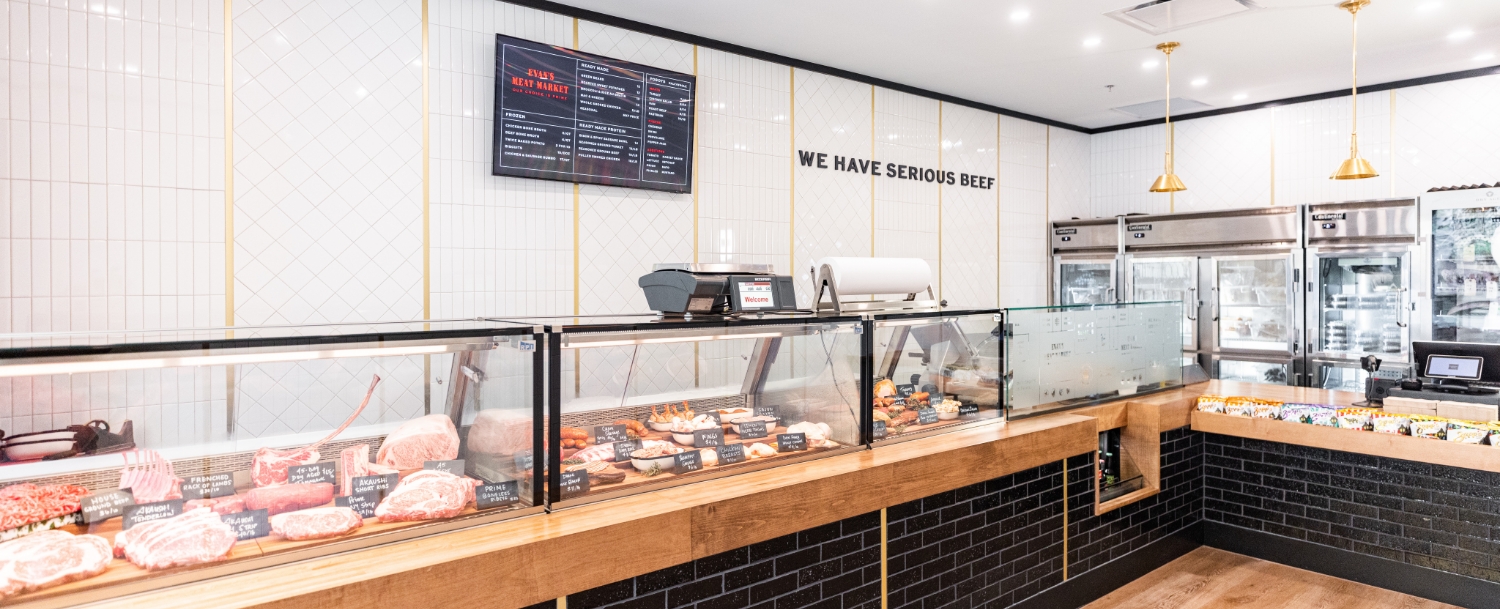Bagley Meat Market Edwardsville IL – Offering Fresh, Locally-Sourced Meat Options
Bagley Meat Market Edwardsville IL – Offering Fresh, Locally-Sourced Meat Options
Blog Article
Why Shopping at a Local Meat Market Guarantees Fresh, High-Quality Cuts
Buying at a neighborhood meat market provides unique benefits that usually go undetected by consumers accustomed to larger retail chains. The ramifications of selecting neighborhood extend beyond instant benefits, triggering a more detailed examination of what this selection genuinely suggests for both customers and the neighborhood economic climate.
Benefits of Neighborhood Sourcing
In the world of food procurement, the benefits of local sourcing attract attention plainly. By acquiring meat from regional markets, consumers obtain straight accessibility to products that are commonly fresher and extra flavorful than those located in larger, industrial grocery stores. Regional sourcing reduces the moment and range food takes a trip from farm to table, which not only improves taste but additionally protects nutritional value.

Furthermore, local sourcing often provides transparency concerning the beginnings of the meat. Consumers can ask about the farming methods used, pet well-being criteria, and whether the meat is natural or grass-fed. This details empowers consumers to make informed decisions straightened with their values.
Quality Assurance Requirements
Local meat markets usually abide by strenuous high quality control criteria that ensure the products offered satisfy high security and freshness standards. These standards typically include different stages of the meat manufacturing procedure, from sourcing to managing and storage space.
First, regional markets typically develop stringent vendor requirements, guaranteeing that just trusted ranches and manufacturers are used - bagley meat market edwardsville il. This decreases the probability of contamination and advertises higher animal welfare requirements. In addition, many local meat markets implement normal inspections to confirm that the meat is processed under hygienic problems, better minimizing health risks
Temperature control is an additional vital element of quality control. Neighborhood meat markets regularly check refrigeration systems to preserve optimal storage temperature levels, making certain that meat continues to be fresh and risk-free for consumption. The implementation of traceability systems allows markets to track the beginning of their items, offering openness and responsibility.
Finally, personnel at regional meat markets are often educated to acknowledge indications of putridity and recognize proper handling strategies. This dedication to quality assurance not only raises the general criterion of the meat however likewise cultivates customer trust fund, making regional meat markets a reputable source for high-quality cuts.
Sustaining Local Farmers
Sustaining regional farmers is necessary for fostering a lasting food system and enhancing area durability. When consumers select to patronize regional meat markets, they directly add to the livelihoods of farmers in their area. This not only sustains the local economic situation yet additionally enhances the farming industry, making certain that it continues to be vibrant and feasible.


Furthermore, sustaining local farmers promotes a feeling of area and link between producers and consumers. It urges openness in food sourcing and imparts trust, as customers can establish partnerships with the people that increase their food. This straight link inevitably leads to a more engaged and informed public, which is important for promoting for lasting farming techniques in the future.
Lasting Practices
Lasting techniques in meat markets play an essential function in promoting environmental stewardship and guaranteeing animal well-being. Regional meat markets usually prioritize sourcing their items from ranches that apply lasting and ethical farming techniques. These methods include rotational grazing, which helps maintain dirt health and wellness and lowers carbon exhausts, along with decreasing the usage of prescription antibiotics and hormonal agents in livestock.
Moreover, local meat markets commonly stress transparency in their supply chains. Customers are offered with information pertaining to the beginning of their meat, allowing you can try here them to make enlightened choices that align with their worths. By supporting local farmers that exercise lasting techniques, consumers add to the preservation of biodiversity and the reduction of transport exhausts connected with long-distance meat distribution.
In addition, numerous local meat markets participate in waste decrease strategies, such as making use of every part of the pet and promoting off-cuts that might otherwise go unsold. By cultivating a more lasting method to meat intake, these markets not only provide high-grade products yet also add positively to the setting and animal well-being. In significance, shopping at a neighborhood meat market aligns consumers with a wider motion in the direction of accountable and moral food sourcing.
Personalized Client Service
Purchasing at a meat market typically incorporates greater than just the products supplied; it is also about the experience and the connections developed between clients and team. Personalized customer service is a hallmark of neighborhood meat markets, setting them aside from larger grocery chains. Experienced team put in the time to comprehend private client choices, making sure that each check out is tailored to specific needs.
Customers take advantage of professional recommendations on cuts, cooking methods, and preparation tips, fostering a sense of trust and commitment. This personalized interaction permits consumers to ask inquiries and look for referrals, resulting in informed investing in decisions. Personnel frequently remember normal consumers and their choices, producing a welcoming environment that grows neighborhood ties.
Furthermore, tailored service includes unique demands, such as personalized cuts or specific prep work techniques, which larger stores may not suit. This degree of interest reinforces the dedication of regional meat markets to top quality and client satisfaction.
Basically, customized client service not just important site enhances the shopping experience yet likewise ensures that clients leave with the most effective items matched to their culinary demands, making every check out a rewarding one.
Final Thought
Sustaining neighborhood farmers cultivates neighborhood partnerships and reinforces the neighborhood economy, while sustainable practices contribute to environmental stewardship. Furthermore, individualized client service improves the buying experience, making local meat markets a preferred choice for customers looking for both high quality and moral factors to consider in their food sourcing.
The effects of picking regional prolong beyond prompt advantages, motivating a more detailed exam of what this option genuinely implies for both customers and the regional economic climate.
Supporting local meat markets additionally adds to the regional economic situation. Neighborhood meat markets often keep track of refrigeration systems to maintain optimum storage space temperatures, making certain that meat stays fresh and risk-free for intake.Regional farmers are commonly extra attuned to the certain needs of their areas, growing plants and increasing livestock that straighten with local preferences and choices. Supporting neighborhood farmers fosters area connections and reinforces the local economy, while lasting practices contribute to ecological stewardship.
Report this page